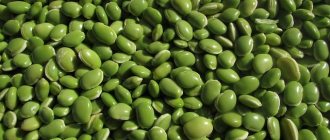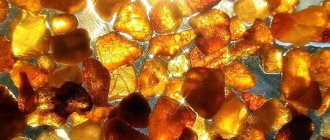Beneficial properties of tyrosine and its effect on the body
Repeated clinical experiments have proven that the best natural antidepressant is tyrosine. Scientists have noted a certain pattern according to which the higher the level of tyrosine in the blood, the higher its ability to withstand stress.
It is important to note that the production of adrenaline and norepinephrine components is related to the amount of tyrosine in the body.
This amino acid, without the need for additional use of chemicals, controls the amount of tyrosine in the human body and, therefore, reduces the likelihood of depressive disorders, stress, anxiety and irritability.
It is generally accepted that it has a significant effect on the functioning of the peripheral and central nervous systems. Tyrosine components have a significant impact on improving the quality and intensity of training in athletes, reduce the time factor of periods of rest and work, reduce fatigue, and are responsible for the prevention of overtraining.
It was noted that tyrosine molecules are included in the process of production of the thyroid hormonal component, which provides an opportunity to increase the hormonal action of the thyroid gland.
The effects of tyrosine components have been observed to reduce the painful effects of the premenstrual period.
When the required level of tyrosine is found in human cells, an improvement in the functioning of the blood-brain barrier is observed.
It is a barrier between blood flow areas and brain cells. They form membranes, allowing only molecules of certain types of substances to pass through and creating a barrier for other types (bacteria, viruses, proteins, low-molecular toxins). The ability of unwanted elements to penetrate the brain is determined by the strength of the protective barrier of the EBC. Protection of the amino group by chemical elements allows the beneficial amino acid to pass through the barrier protection and protects it from unnecessary substances.
The enormous beneficial effects of tyrosine have been identified in the fight against addiction to caffeine and narcotic drugs, and in the fight against uncontrolled drug use.
Tyrosine is the starting material for the production of certain hormones, such as dopamine, thyroxine, epinephrine and some others.
In addition, as a result of the transformation of tyrosine, the production of melanin pigment is noted.
Signs of tyrosine deficiency in the body
- obesity;
- fast fatiguability;
- state of depression;
- poor resistance to stress;
- sudden mood swings;
- premenstrual pain;
- decreased appetite;
- decreased brain activity;
- manifestations of Parkinson's disease;
- dysfunction of the thyroid gland;
- hyperactivity;
- disruptions in the functioning of the adrenal glands.
Signs of excess tyrosine in the body
- loss of muscle mass;
- manifestation of hypertension;
- decreased body temperature;
- increased heart rate.
Products containing tyrosine
Tyrosine is a nonessential amino acid that is produced in small quantities in the body. A deficiency of this acid can cause serious depression or anxiety disorders. Tyrosine has a positive effect on the body and helps suppress hunger, which is so important when losing weight. With its help, melatonin is produced, which is necessary for regulating circadian rhythms. Tyrosine promotes the breakdown of fat deposits.
Tyrosine is necessary for people who suffer from chronic fatigue and headaches. Products containing tyrosine improve mood and help normalize metabolism. In cases of depression, it is necessary to include in your diet more foods that are rich in tyrosine. In case of pronounced tyrosine deficiency, it is better to give preference to medications or dietary supplements that contain the amino acid, but Chastnosti.com magazine does not recommend self-medication.
Symptoms of low tyrosine levels
- Depression and nervousness;
- Low blood pressure and body temperature;
- Problems with the thyroid gland;
- Chronic fatigue.
What foods contain tyrosine?
The need for tyrosine depends on physical and mental stress, as well as the person’s age. The average person needs about 500-1500 mg of tyrosine. In the human body, tyrosine is produced with the help of the acid phenylalanine, which is also found in many foods. There is a lot of tyrosine in nuts, and especially in peanuts and walnuts. Tyrosine is found in sunflower seeds, almonds and sesame. Dairy products are rich in tyrosine, as it is part of milk protein. Among the fruits rich in tyrosine are bananas.
For some diseases, it is better to limit the consumption of foods rich in tyrosine. These include the presence of any tumors. It is not advisable to supply the body with a large amount of tyrosine during migraines. Now you can find many nutritional supplements that contain tyrosine, but it is better to give preference to natural products that are better absorbed by the body.
Taking tyrosine supplements may enhance certain effects, such as increased alertness and performance. When using special supplements containing tyrosine, you should avoid caffeine and alcoholic beverages. Tyrosine promotes the production of melanin and allows you to get a beautiful tan. It is very often used by bodybuilders.
What foods contain tyrosine?
- Dairy products;
- Meat;
- Wheat;
- Peanut;
- Legumes;
- Seafood;
- Bananas;
- Almond;
- Sesame;
- Pumpkin seeds;
- Eggs;
- Avocado.
A person’s well-being directly depends on the food he eats. A lack of nutrients will definitely affect human health. Tyrosine is responsible not only for a person’s mood, but also for metabolic processes in the body. If it is deficient, you may experience poor health, fatigue, and a decrease in body temperature and blood pressure. You can cope with this condition by including seafood, sesame seeds, avocado and almonds in your diet. A high-quality and varied diet will allow you to be in a great mood all the time and forget about depression.
Functions and actions of l-tyrosine
Tyrosine is formed and formed in the body through phenylalanine, which is absorbed as dopamine, norepinephrine, and adrenaline. Connections regulate neurophysiological function: • memory parameters; • attentiveness; • emotional state and mood; • mobility; • observation; • vigilance.
Note. Tyrosine produces and synthesizes auxiliary chemical compounds and hormones. Helps the performance of organs that produce and control the level of hormones throughout the body - the adrenal glands, the thyroid gland and the pituitary gland.
L-tyrosine for the thyroid gland
L-tyrosine supports the functioning of the thyroid gland, is able to increase the concentration of thyroxine and triiodothyronine, and is important for: • the level of energy balance; • body weight control; • emotional state; • skin health. The component is able to fight depression, diabetes, stroke, obesity and others. L-tyrosine is prescribed to improve brain function and motivation, strengthen sexual function and strength of libido.
Note. Available in pharmacies without a doctor's prescription, tyrosine can be taken in small doses by adults (over 18 years of age).
Daily norm
Clinical studies show that tyrosine in the form of a dietary supplement can be consumed up to 12 g per day.
Meanwhile, doctors do not advise resorting to such high doses unless absolutely necessary. Moreover, the adequate generally accepted daily intake for healthy people ranges between 1 and 5 grams of the substance (approximately 16 mg per 1 kg of human weight). This is quite enough for tyrosine to efficiently perform its functions in the body.
But people with excess weight, poor memory, abnormalities in the thyroid gland, a tendency to depression or hyperactivity need tyrosine more than healthy people. You can also increase your daily amino acid intake to relieve unpleasant symptoms of PMS, slow down the development of Parkinson's disease and improve brain function. Individuals who work physically or actively participate in sports should also take care to get a slightly higher dose of tyrosine.
Elderly people, hypertensive patients, people with low body temperature and digestive disorders, as well as with Felling's disease or using antidepressants, on the contrary, are not advised to abuse supplements containing the amino acid.
Consequences of l-tyrosine deficiency
Due to a lack of tyrosine, a pathological disease such as tyrosinemia can occur. This is due to insufficient activity of fumarylacetoacetate hydrolase. Mutation processes entail impaired tyrosine exchange with the liver, kidneys, and peripheral nerves. Some side effects occur due to low energy balance: • uncontrolled weight gain; • sharp decrease in muscle tissue; • swollen neck condition; • dementia; • disrupted functioning of the menstrual cycle in women; • constipation; • long incurable migraines; • pain in the spinal region; • dry and brittle hair; • circulatory disorders; • lowering blood pressure; • sluggish and apathetic state. Tyrosine for the thyroid gland is prescribed to maintain the function of the thyroid gland in a dosage of 500 mg to 1000 mg daily 2-3 times. It is not recommended to take with food to ensure proper absorption in the gastrointestinal tract. Some side effects are known: • nausea; • vomit; • diarrhea; • headache. Be sure to consult an endocrinologist before use.
There are other options for maintaining hormone levels that are used in conjunction with the use of L-tyrosine. These methods include: • constant healthy eating, a stable diet; • performing breathing exercises and yoga; • periodic meditations; • support for an active lifestyle; • consumption of sufficient levels of clean water, drinking balance; • participation in therapeutic practices such as acupuncture, massages. It is l-tyrosine that has an effect on the pituitary gland, the glands responsible for transmitting signals for sufficient reproduction of thyroid-stimulating hormone.
Daily norm
A person over 18 years of age requires 25 mg of the substance per 1 kilogram of body weight per 24 hours. At least half of the daily requirement in standard situations enters the body with food, and therefore, to resist stress or improve brain functionality, approximately 12 mg per 1 kilogram of body weight will be required.
Attention. For depressive conditions, a dose of 0.5-1 g of tyrosine 3 times a day is advisable; for normalizing sleep - 1500 mg.
Signs of deficiency in the body
Tyrosine-rich foods
The highest concentration of tyrosine is found in the following products. Tyrosine in food, table:
What other food products contain tyrosine: • cereals: peas and lentils, semolina, buckwheat, millet, miso and hummus, fresh and canned green peas; • fruits and vegetables: bananas, avocado, pear, persimmon, orange, papaya, feijoa, kiwi, figs, mango, apple, tangerine, pineapple, white cabbage, potatoes, zucchini; • berries: plum, cherry, apricot, watermelon, grapes, blueberries, strawberries, peach, strawberry, cranberry; • greens, mushrooms: dill, parsley, basil, champignons, shiitake; • nuts and seeds: peanuts, pistachios, cashews, walnuts, sesame seeds, sunflower seeds, pine nuts, hazelnuts, almonds; • flour products: pasta, bread made from wheat and rye flour, wheat flour. The tyrosine content in products can cover the need by 50% or more. The diet should be enriched with the above-listed foods containing tyrosine. This is required for the normal functioning of the entire human body. If necessary, you need to start taking tyrosine medications, which will start the fight against brain disorders, fatigue, bad mood and other manifestations, as well as in the complex treatment of drug addiction and alcoholism.
Tyrosine content in foods of plant origin
Table of tyrosine content in products from the category - products of plant origin. The chart shows the percentage of tyrosine from the daily requirement, calculated based on a 100 g portion of the product.
| № | Quantity | Share of daily value per 100 g | |
| 1 | Soy Protein (Isolate) Powder | 3.2 g | 73,2% |
| 2 | Soy protein (concentrate) powder | 2.3 g | 52,3% |
| 3 | Soy protein powder | 2.2 g | 49,3% |
| 4 | Soybean cake | 1.7 g | 38,6% |
| 5 | Sunflower flour | 1.4 g | 32,0% |
| 6 | Sesame flour | 1.3 g | 29,3% |
| 7 | Hemp seed | 1.3 g | 28,7% |
| 8 | Peeled pumpkin seeds | 1.1 g | 24,8% |
| 9 | Peanuts raw | 1.0 g | 23,8% |
| 10 | Butternut | 1.0 g | 22,2% |
| 11 | Roasted peanuts | 1.0 g | 21,9% |
| 12 | Mustard seeds ground mustard | 0.8 g | 18,4% |
| 13 | Unroasted sesame | 0.8 g | 18,0% |
| 14 | Fenugreek seeds | 0.8 g | 17,4% |
| 15 | Black Walnut | 0.7 g | 16,8% |
| 16 | Poppy seeds | 0.7 g | 16,5% |
| 17 | Roasted sesame | 0.7 g | 16,1% |
| 18 | Unheated oat bran | 0.7 g | 15,2% |
| 19 | Sunflower seeds, peeled | 0.7 g | 15,1% |
| 20 | Tempe | 0.7 g | 15,1% |
| 21 | Cumin seeds | 0.6 g | 14,6% |
| 22 | Boiled soybeans (ripe) | 0.6 g | 14,3% |
| 23 | Lupine (lupine beans) cooked | 0.6 g | 13,3% |
| 24 | Roasted sunflower seeds (hulled) | 0.6 g | 12,8% |
| 25 | Chia seeds | 0.6 g | 12,8% |
| 26 | Roasted pistachios (no salt) | 0.5 g | 12,1% |
| 27 | Dry chickpeas | 0.5 g | 11,6% |
| 28 | Macadamia nut | 0.5 g | 11,6% |
| 29 | Fresh pistachios | 0.5 g | 11,6% |
| 30 | Pine nut without shell | 0.5 g | 11,6% |
| 31 | Cashew raw | 0.5 g | 11,5% |
| 32 | Roasted macadamia nut | 0.5 g | 11,4% |
| 33 | Flaxseed | 0.5 g | 11,2% |
| 34 | Roasted cashews | 0.5 g | 11,2% |
| 35 | Ground black pepper | 0.5 g | 11,0% |
| 36 | Fresh sprouted soybeans | 0.5 g | 10,8% |
| 37 | Fresh almonds | 0.5 g | 10,2% |
| 38 | Roasted almonds | 0.4 g | 10,1% |
| 39 | Unheated wheat bran | 0.4 g | 9,9% |
| 40 | Reveler seeds | 0.4 g | 9,5% |
| 41 | Brazilian nut | 0.4 g | 9,5% |
| 42 | Unheated rice bran | 0.4 g | 9,3% |
| 43 | Fennel seeds | 0.4 g | 9,3% |
| 44 | Walnut | 0.4 g | 9,2% |
| 45 | Dry soy tofu cheese | 0.4 g | 9,2% |
| 46 | Triticale flour | 0.4 g | 8,8% |
| 47 | Dry corn kernels | 0.4 g | 8,7% |
| 48 | Walnut drank | 0.4 g | 8,7% |
| 49 | Hard tofu cheese (linen) | 0.4 g | 8,3% |
| 50 | Roasted hazelnuts | 0.4 g | 8,3% |
| 51 | Fresh hazelnuts | 0.4 g | 8,2% |
| 52 | Soy sauce (tamari) | 0.3 g | 7,8% |
| 53 | Malted barley flour | 0.3 g | 7,8% |
| 54 | Edamame cooked | 0.3 g | 7,6% |
| 55 | Millet flour | 0.3 g | 7,4% |
| 56 | Turmeric spice powder | 0.3 g | 7,3% |
| 57 | Rice flour | 0.3 g | 7,1% |
| 58 | All-purpose wheat flour | 0.3 g | 7,1% |
| 59 | Barley flour | 0.3 g | 6,8% |
| 60 | Oregano oregano, dried | 0.3 g | 6,8% |
| 61 | Yellow whole grain corn flour | 0.3 g | 6,4% |
| 62 | Whole grain flour (wheat) | 0.3 g | 6,3% |
| 63 | Fresh sprouted wheat | 0.3 g | 6,3% |
| 64 | Fermented tofu cheese (fuyu) | 0.3 g | 6,2% |
| 65 | Brown rice flour | 0.3 g | 6,2% |
| 66 | Rice bran bread | 0.3 g | 6,2% |
| 67 | Spirulina raw | 0.3 g | 6,0% |
| 68 | Boiled pink beans | 0.3 g | 5,8% |
| 69 | Nori seaweed, raw | 0.3 g | 5,8% |
| 70 | Fresh sprouted lentils | 0.3 g | 5,7% |
| 71 | Wheat bran bread | 0.3 g | 5,7% |
| 72 | Boiled black beans | 0.3 g | 5,7% |
| 73 | Boiled black-eyed beans | 0.3 g | 5,7% |
| 74 | Ginger extract powder | 0.2 g | 5,5% |
| 75 | Peas boiled in water (ripe) | 0.2 g | 5,5% |
| 76 | Dry green buckwheat | 0.2 g | 5,5% |
| 77 | Lentils boiled in water | 0.2 g | 5,5% |
| 78 | Boiled beans (ripe) | 0.2 g | 5,5% |
| 79 | Buckwheat flour | 0.2 g | 5,2% |
| 80 | White corn flour (masa) | 0.2 g | 5,2% |
| 81 | Whole grain sorghum flour | 0.2 g | 5,1% |
| 82 | Potato starch | 0.2 g | 5,1% |
| 83 | Boiled adzuki beans | 0.2 g | 5,1% |
| 84 | Dried goji berries | 0.2 g | 5,0% |
| 85 | Boiled chickpeas | 0.2 g | 5,0% |
| 86 | Hot chili peppers dried in the sun | 0.2 g | 5,0% |
| 87 | Pecan | 0.2 g | 4,9% |
| 88 | Boiled variegated beans (Pinto) | 0.2 g | 4,8% |
| 89 | Rye bread | 0.2 g | 4,8% |
| 90 | Unsweetened coconut flakes | 0.2 g | 4,8% |
| 91 | Boiled mung bean | 0.2 g | 4,8% |
| 92 | Caramel | 0.2 g | 4,7% |
| 93 | Boiled red beans (Kidney) | 0.2 g | 4,7% |
| 94 | Rye flour | 0.2 g | 4,5% |
| 95 | Boiled white beans | 0.2 g | 4,5% |
| 96 | Fresh green beans | 0.2 g | 4,5% |
| 97 | Ground dry chili pepper | 0.2 g | 4,3% |
| 98 | Cloves (spice) seasoning powder | 0.2 g | 4,3% |
| 99 | Fresh sprouted variegated beans (Pinto) | 0.2 g | 4,1% |
| 100 | Pancakes | 0.2 g | 4,1% |
| 101 | Quinoa fresh | 0.2 g | 4,0% |
| 102 | Beechnut | 0.2 g | 3,9% |
| 103 | Boiled wild rice | 0.2 g | 3,8% |
| 104 | Boiled pigeon peas | 0.2 g | 3,8% |
| 105 | Rye bread | 0.2 g | 3,8% |
| 106 | Boiled green beans | 0.2 g | 3,8% |
| 107 | Fresh pumpkin leaves | 0.2 g | 3,5% |
| 108 | Chocolate cupcake with chocolate icing | 0.2 g | 3,5% |
| 109 | Red beans (Kidney) sprouted fresh | 0.1 g | 3,3% |
| 110 | Enoki mushrooms raw | 0.1 g | 3,2% |
| 111 | Cinnamon powder | 0.1 g | 3,1% |
| 112 | Table mustard, paste | 0.1 g | 3,0% |
| 113 | Teff cooked | 0.1 g | 3,0% |
| 114 | Fresh sprouted peas | 0.1 g | 2,9% |
| 115 | Boiled corn | 0.1 g | 2,9% |
| 116 | Raw corn | 0.1 g | 2,8% |
| 117 | Dried bananas | 0.1 g | 2,8% |
| 118 | Fresh green peas | 0.1 g | 2,6% |
| 119 | Fresh peppermint | 0.1 g | 2,6% |
| 120 | Boiled spinach | 0.1 g | 2,6% |
| 121 | Fresh spinach | 0.1 g | 2,5% |
| 122 | Millet boiled in water | 0.1 g | 2,5% |
| 123 | Fresh jackfruit | 0.1 g | 2,3% |
| 124 | Fresh coconut meat | 0.1 g | 2,3% |
| 125 | Cooked cowpea (boiled) | 0.1 g | 2,3% |
| 126 | Fresh rosemary | 0.1 g | 2,3% |
| 127 | Couscous boiled in water | 0.1 g | 2,3% |
| 128 | Lotus seeds | 0.1 g | 2,3% |
| 129 | Fresh mint | 0.1 g | 2,3% |
| 130 | Boiled long grain brown rice | 0.1 g | 2,2% |
| 131 | Fresh dill | 0.1 g | 2,2% |
| 132 | Fresh chives | 0.1 g | 2,2% |
| 133 | French fries | 0.1 g | 2,1% |
| 134 | Canned green peas | 0.1 g | 2,1% |
| 135 | Bulgur boiled in water (porridge) | 0.1 g | 2,0% |
| 136 | Boiled long grain rice | 0.1 g | 2,0% |
| 137 | Broccoli raab cooked | 0.1 g | 2,0% |
| 138 | Canned corn | 0.1 g | 2,0% |
| 139 | Boiled brown rice | 0.1 g | 2,0% |
| 140 | Raw okra | 0.1 g | 2,0% |
| 141 | Steamed boiled rice | 0.1 g | 2,0% |
| 142 | Raw oyster mushrooms | 0.1 g | 1,9% |
| 143 | Fresh sorrel | 0.1 g | 1,9% |
| 144 | Quinoa boiled in water | 0.1 g | 1,9% |
| 145 | Fresh parsley | 0.1 g | 1,9% |
| 146 | Raw garlic | 0.1 g | 1,8% |
| 147 | Boiled rice (in water) | 0.1 g | 1,8% |
| 148 | Fresh amaranth leaves | 0.1 g | 1,8% |
| 149 | Boiled round grain rice | 0.1 g | 1,8% |
| 150 | Fresh basil | 0.1 g | 1,8% |
| 151 | Fresh broccoli raab | 0.1 g | 1,7% |
| 152 | Mashed potatoes with milk and butter, prepared | 0.1 g | 1,7% |
| 153 | Baked potatoes | 0.1 g | 1,7% |
| 154 | Fresh shallots | 0.1 g | 1,6% |
| 155 | Fresh coconut milk | 0.1 g | 1,6% |
| 156 | Maitake mushrooms raw | 0.1 g | 1,6% |
| 157 | Fried portobello mushrooms | 0.1 g | 1,6% |
| 158 | Boiled glutinous (sticky) rice | 0.1 g | 1,5% |
| 159 | Fresh kale | 0.1 g | 1,5% |
| 160 | Barley boiled in water (barley porridge) | 0.1 g | 1,5% |
| 161 | Boiled potatoes | 0.1 g | 1,5% |
| 162 | Raw beetroot | 0.1 g | 1,4% |
| 163 | Buckwheat boiled in water (buckwheat porridge) | 0.1 g | 1,4% |
| 164 | Boiled broccoli | 0.1 g | 1,4% |
| 165 | Fresh turnip tops | 0.1 g | 1,3% |
| 166 | Boiled asparagus | 0.1 g | 1,3% |
| 167 | Cooked cabbage (boiled) | 0.1 g | 1,3% |
| 168 | Fresh onion | 0.1 g | 1,3% |
| 169 | Brown raw champignons | 0.1 g | 1,2% |
| 170 | Fresh beet tops | 0.1 g | 1,2% |
| 171 | Raw asparagus | 0.1 g | 1,2% |
| 172 | Fresh sprouted mung bean | 0.1 g | 1,2% |
| 173 | Fresh cauliflower | 0.1 g | 1,2% |
| 174 | Fresh elderberry | 0.1 g | 1,2% |
| 175 | Fresh broccoli | 0.1 g | 1,1% |
| 176 | Fresh black persimmon (sapota) | 0.0 g | 1,1% |
| 177 | Canned heart of palm | 0.0 g | 1,1% |
| 178 | Avocado fresh | 0.0 g | 1,1% |
| 179 | Raw wakame seaweed | 0.0 g | 1,1% |
| 180 | Raw potatoes | 0.0 g | 1,1% |
| 181 | Fried champignons | 0.0 g | 1,1% |
| 182 | Chestnut, peeled, fresh | 0.0 g | 1,0% |
| 183 | Shiitake mushrooms, cooked | 0.0 g | 1,0% |
| 184 | Raw champignons | 0.0 g | 1,0% |
| 185 | Starfruit (starfruit) fresh | 0.0 g | 1,0% |
| 186 | Boiled green beans (asparagus) | 0.0 g | 1,0% |
| 187 | Carrots raw (fresh) | 0.0 g | 1,0% |
| 188 | Red hot fresh chili pepper | 0.0 g | 1,0% |
| 189 | Raw pumpkin | 0.0 g | 1,0% |
| 190 | Fresh leek | 0.0 g | 0,9% |
| 191 | Boiled cauliflower | 0.0 g | 0,9% |
| 192 | Fresh endive | 0.0 g | 0,9% |
| 193 | Boiled beets | 0.0 g | 0,9% |
| 194 | Yams cooked | 0.0 g | 0,9% |
| 195 | Dried apricots | 0.0 g | 0,9% |
| 196 | Raw beets | 0.0 g | 0,9% |
| 197 | Escarole cooked | 0.0 g | 0,8% |
| 198 | Boiled carrots | 0.0 g | 0,8% |
| 199 | Fresh savoy cabbage | 0.0 g | 0,8% |
| 200 | Fresh kiwi | 0.0 g | 0,8% |
| 201 | Raw sweet potato | 0.0 g | 0,8% |
| 202 | Boiled onions | 0.0 g | 0,8% |
| 203 | Chayote raw | 0.0 g | 0,7% |
| 204 | Fresh figs | 0.0 g | 0,7% |
| 205 | Fresh cranberries | 0.0 g | 0,7% |
| 206 | Fresh lettuce | 0.0 g | 0,7% |
| 207 | Fresh plantains | 0.0 g | 0,7% |
| 208 | Fresh guava | 0.0 g | 0,7% |
| 209 | Cherimoya fresh | 0.0 g | 0,7% |
| 210 | Boiled or baked pumpkin | 0.0 g | 0,7% |
| 211 | Fresh Chinese cabbage | 0.0 g | 0,7% |
| 212 | Fresh red lettuce | 0.0 g | 0,7% |
| 213 | Fresh apricot | 0.0 g | 0,7% |
| 214 | Cooked squash | 0.0 g | 0,6% |
| 215 | Canned olives | 0.0 g | 0,6% |
| 216 | Raw seaweed | 0.0 g | 0,6% |
| 217 | Fresh Roman salad | 0.0 g | 0,6% |
| 218 | Fresh longan | 0.0 g | 0,6% |
| 219 | Boiled burdock root | 0.0 g | 0,5% |
| 220 | Fresh persimmon | 0.0 g | 0,5% |
| 221 | Fresh red cabbage | 0.0 g | 0,5% |
| 222 | Fresh strawberries | 0.0 g | 0,5% |
| 223 | Fresh coconut water | 0.0 g | 0,5% |
| 224 | Cooked eggplant | 0.0 g | 0,5% |
| 225 | Leeks cooked | 0.0 g | 0,5% |
| 226 | Raw ginger root | 0.0 g | 0,5% |
| 227 | Fresh breadfruit | 0.0 g | 0,4% |
| 228 | Fresh cabbage, white cabbage | 0.0 g | 0,4% |
| 229 | Boiled cabbage (white cabbage) | 0.0 g | 0,4% |
| 230 | Fresh head lettuce | 0.0 g | 0,4% |
| 231 | Fresh pineapple | 0.0 g | 0,4% |
| 232 | Taro cooked tubers | 0.0 g | 0,4% |
| 233 | Cooked tomatoes | 0.0 g | 0,4% |
| 234 | Fried or baked zucchini (without oil) | 0.0 g | 0,4% |
| 235 | Dates Majul | 0.0 g | 0,4% |
| 236 | Fresh oranges | 0.0 g | 0,4% |
| 237 | Mango fresh | 0.0 g | 0,4% |
| 238 | Dates Deglet nur | 0.0 g | 0,3% |
| 239 | Fresh tangerines | 0.0 g | 0,3% |
| 240 | Fresh cantaloupe melon | 0.0 g | 0,3% |
| 241 | Fresh peach, pitted | 0.0 g | 0,3% |
| 242 | Fresh tomatoes | 0.0 g | 0,3% |
| 243 | Sapodilla fruits fresh | 0.0 g | 0,3% |
| 244 | Fresh onions | 0.0 g | 0,3% |
| 245 | Fresh medlar | 0.0 g | 0,3% |
| 246 | Turnips raw | 0.0 g | 0,3% |
| 247 | Green bell pepper, fresh | 0.0 g | 0,3% |
| 248 | Fresh watermelon | 0.0 g | 0,3% |
| 249 | Fresh cucumbers | 0.0 g | 0,3% |
| 250 | Fresh daikon | 0.0 g | 0,3% |
| 251 | Cooked turnips | 0.0 g | 0,3% |
| 252 | Fresh melon | 0.0 g | 0,2% |
| 253 | Corn starch | 0.0 g | 0,2% |
| 254 | Grapes (red or green) fresh | 0.0 g | 0,2% |
| 255 | Fresh blueberries | 0.0 g | 0,2% |
| 256 | Feijoa fresh | 0.0 g | 0,2% |
| 257 | Fresh red bell pepper | 0.0 g | 0,2% |
| 258 | Fresh radish | 0.0 g | 0,2% |
| 259 | Fresh celery | 0.0 g | 0,2% |
| 260 | Arrowroot flour | 0.0 g | 0,2% |
| 261 | Fresh bananas | 0.0 g | 0,2% |
| 262 | Fresh grapefruit | 0.0 g | 0,2% |
| 263 | Fresh plum | 0.0 g | 0,2% |
| 264 | Fresh iceberg lettuce | 0.0 g | 0,2% |
| 265 | Fresh papaya | 0.0 g | 0,1% |
| 266 | Canned orange juice | 0.0 g | 0,1% |
| 267 | Canned grape juice | 0.0 g | 0,1% |
| 268 | Fresh pear | 0.0 g | 0,0% |
| 269 | Fresh lime juice | 0.0 g | 0,0% |
| 270 | Fresh apples | 0.0 g | 0,0% |
| 271 | Almond oil | 0.0 g | 0,0% |
| 272 | Hazelnut oil | 0.0 g | 0,0% |
| 273 | Walnut oil | 0.0 g | 0,0% |
| 274 | Cottonseed oil | 0.0 g | 0,0% |
| 275 | Olive oil | 0.0 g | 0,0% |
| 276 | Gin 45 degrees alcohol | 0.0 g | 0,0% |
| 277 | Palm oil | 0.0 g | 0,0% |
| 278 | Cacao butter | 0.0 g | 0,0% |
| 279 | Wheat germ oil | 0.0 g | 0,0% |
| 280 | Shea butter (karite) | 0.0 g | 0,0% |
| 281 | Rice bran oil | 0.0 g | 0,0% |
| 282 | Coconut oil | 0.0 g | 0,0% |
| 283 | Aspartame sugar substitute | 0.0 g | 0,0% |
| 284 | Corn oil | 0.0 g | 0,0% |
| 285 | Apricot oil | 0.0 g | 0,0% |
| 286 | Sesame oil | 0.0 g | 0,0% |
| 287 | Peanut butter | 0.0 g | 0,0% |
| 288 | Babassu oil | 0.0 g | 0,0% |
| 289 | Soybean oil | 0.0 g | 0,0% |
| 290 | Poppy oil | 0.0 g | 0,0% |
| 291 | Apple cider vinegar | 0.0 g | 0,0% |
| 292 | Grape seed oil | 0.0 g | 0,0% |
| 293 | Onion rings | n/a | 0,0% |
| 294 | Fennel, raw (fruit or root) | n/a | 0,0% |
| 295 | Nutmeg spice, ground | n/a | 0,0% |
| 296 | Physalis fresh | n/a | 0,0% |
| 297 | Fresh vegetable physalis | n/a | 0,0% |
| 298 | Mustard oil | n/a | 0,0% |
| 299 | Jujube (Chinese date) fresh | n/a | 0,0% |
| 300 | Fresh pomegranate | n/a | 0,0% |
| 301 | Canned pomegranate juice | n/a | 0,0% |
| 302 | Naranjilla frozen | n/a | 0,0% |
| 303 | Fresh grapefruit juice | n/a | 0,0% |
| 304 | Oat oil | n/a | 0,0% |
| 305 | Oat flour | n/a | 0,0% |
| 306 | Wood mushroom raw | n/a | 0,0% |
| 307 | Raw chanterelle mushrooms | n/a | 0,0% |
| 308 | Horseradish, ready to eat | n/a | 0,0% |
| 309 | Morel mushrooms, raw | n/a | 0,0% |
| 310 | Fresh dandelion leaves | n/a | 0,0% |
| 311 | Chicory root, raw | n/a | 0,0% |
| 312 | Instant chicory (ready-made coffee) | n/a | 0,0% |
| 313 | Canned pear juice (nectar) | n/a | 0,0% |
| 314 | Fresh chicory leaves | n/a | 0,0% |
| 315 | Ground savory | n/a | 0,0% |
| 316 | Canned green olives | n/a | 0,0% |
| 317 | Prickly pear (fruit) fresh | n/a | 0,0% |
| 318 | Green tea without sugar, prepared | n/a | 0,0% |
| 319 | Green tea with sugar (prepared) | n/a | 0,0% |
| 320 | Black tea without sugar, prepared | n/a | 0,0% |
| 321 | Black tea with sugar and lemon (prepared) | n/a | 0,0% |
| 322 | Fresh jambolan | n/a | 0,0% |
| 323 | Durian fresh | n/a | 0,0% |
| 324 | Papaya juice (nectar) canned | n/a | 0,0% |
| 325 | Fresh blackberries | n/a | 0,0% |
| 326 | Fern (shoots) raw | n/a | 0,0% |
| 327 | Canned blackberry juice | n/a | 0,0% |
| 328 | Parsnip root raw | n/a | 0,0% |
| 329 | Ground sage | n/a | 0,0% |
| 330 | Ground allspice | n/a | 0,0% |
| 331 | Saffron spice | n/a | 0,0% |
| 332 | Jeera cumin seeds | n/a | 0,0% |
| 333 | Fresh mulberries | n/a | 0,0% |
| 334 | Seedless raisins | n/a | 0,0% |
| 335 | Canned peach juice (nectar) | n/a | 0,0% |
| 336 | Fresh Suriname cherries | n/a | 0,0% |
| 337 | Sunflower oil | n/a | 0,0% |
| 338 | Yogurt | n/a | 0,0% |
| 339 | Iris | n/a | 0,0% |
| 340 | Halva | n/a | 0,0% |
| 341 | Fresh pomelo | n/a | 0,0% |
| 342 | Dried tarragon | n/a | 0,0% |
| 343 | Canola oil | n/a | 0,0% |
| 344 | Fresh purslane | n/a | 0,0% |
| 345 | Pickled capers | n/a | 0,0% |
| 346 | Canned apple juice | n/a | 0,0% |
| 347 | Fresh Brussels sprouts | n/a | 0,0% |
| 348 | Java apple fresh | n/a | 0,0% |
| 349 | Boiled Brussels sprouts | n/a | 0,0% |
| 350 | Sauerkraut (kimchi) | n/a | 0,0% |
The influence of nutrition on tyrosine content in the body
It is known that the substance belongs to the non-essential amino acids. If it is insufficiently supplied to the body, the deficiency is compensated by phenylalanine, which undergoes synthesis.
Daily requirement
Experts do not recommend exceeding the dosage of the substance. To obtain the daily requirement, you need to include a variety of foods in your diet.
The maximum daily intake does not exceed 12 g. The average is 1-5 g of the substance. This amount is sufficient to adequately perform functions in the human body.
An increase in tyrosine dosage is required in the following cases:
- excess weight;
- poor memory;
- thyroid dysfunction;
- hyperactivity;
- tendency to depression;
- Parkinson's disease;
- PMS symptoms;
- intense physical activity.
You should not overuse foods containing tyrosine if you have digestive disorders, Felling's disease, or are taking antidepressants.
Digestibility
The body absorbs the amino acid in the form of adrenaline, norepinephrine and dopamine (catecholamines). These neurotransmitters correct the following processes:
Insufficient intake of catecholamines into the body leads to cognitive dysfunction. To normalize their level, you need to consume foods with significant concentrations of the substance. These include turkey, fish, chicken. In some cases, it is advisable to take medications and dietary supplements.
Tyrosine is introduced into the nervous system (central) by quickly crossing the blood-brain barrier. At the same time, the level of dopamine, norepinephrine, and adrenaline increases. Thus, the organic compound affects a whole range of processes occurring in the body.
The effect of tyrosine on the body
The chemical name of the amino acid is 4-hydroxyphenylalanine. Tyrosine is one of the 20 most important substances that are represented by organic compounds. This is a replaceable unit. The body is able to synthesize tyrosine on its own. Consuming sufficient amounts of amino acid sources means there is no need for additional dietary supplements.
Tyrosine affects many processes occurring in the body. One of the functions of the substance is the production of neurotransmitters necessary for the proper functioning of the brain and maintaining a good emotional background.
The term is translated from Greek as “cheese”. The substance received its name in the 50s of the 19th century. Tyrosine was found in casein. This is the protein found in cheese.
Attention! Tyrosine can be synthesized from another amino acid called phenylalanine.
There are 3 forms of an organic compound:
- L-tyrosine, present in proteins of living organisms;
- D-tyrosine, a neurotransmitter found in enzymes;
- DL-tyrosine, which does not differ in optical energy.
Amino acid has another meaning. It is involved in the synthesis of hormones and chemicals, in particular melanin. Thanks to the non-essential amino acid, the work of the organs (thyroid gland, pituitary gland, adrenal glands) that are responsible for the production and regulation of hormone levels is carried out.
Tyrosine influences the creation of proteins in the human body
The following positive properties are called:
- improving mood, creating a feeling of well-being;
- increased cognitive function during periods of stress;
- protecting the body from the consequences caused by anxiety and nervous shock;
- participation in the production of the hormone of happiness and pleasure (dopamine).
Important! Tyrosine improves attention and promotes vigor.
Among the main functions of an organic compound are:
- Protein synthesis. To build the corresponding molecules, the body uses various combinations of 20 amino acids. One of them is tyrosine. Proteins or proteins are able to control the activity of genes, provide chemical reactions, and structural support necessary for cellular elements.
- Maintaining brain function. The function is achieved through the creation of neurotransmitters that transmit nerve impulses.
- Relieving stress. This is due to the production of norepinephrine and adrenaline. Tyrosine can also mitigate the effects of exposure to cold and relieve fatigue after active work. The amino acid affects sleep, increases intellectual potential and performance.
- Carrying out physiological processes. The organic compound is directly involved in the synthesis of melanin. This pigment gives the skin color while protecting it from the harmful effects of ultraviolet rays.
- Impact on hormones. The substance controls the functioning of the thyroid gland and pituitary gland. Suppressing appetite and reducing fat storage occurs by increasing the levels of the hormones epinephrine and norepinephrine.
Important! Scientists believe that the organic compound helps cope with drug and caffeine addiction.
Signs of tyrosine deficiency and excess
Abuse of protein products rarely causes increased concentrations of the substance in the body. Excess usually occurs when using appropriate dietary supplements, which is manifested by:
- joint pain;
- migraines;
- allergic reactions;
- disorders of the digestive system;
- insomnia.
Often, experts identify a deficiency of nonessential amino acids, which is caused by insufficient consumption of products containing L-tyrosine. Chronic lack of substance provokes the development of hypothyroidism. Other symptoms include:
- weight gain;
- reduction in the volume of muscle tissue;
- dementia;
- menstrual irregularities;
- dry and brittle hair;
- lethargy;
- decrease in pressure.
If you are deficient in tyrosine, you need to consume more foods that contain it. This will eliminate pathological signs.
What foods contain tyrosine?
The amino acid is present mainly in protein products:
- meat (chicken, turkey);
- fish (cod, tuna, mackerel, halibut);
- dairy products (yogurt, cottage cheese);
- nuts (almonds, peanuts, pistachios);
- fruits (bananas, avocados);
- legumes (chickpeas, beans, lentils);
- seeds (sesame, sunflower);
- soy;
- seafood (shrimp, crabs).
The leader in the presence of organic compounds is cheese.










